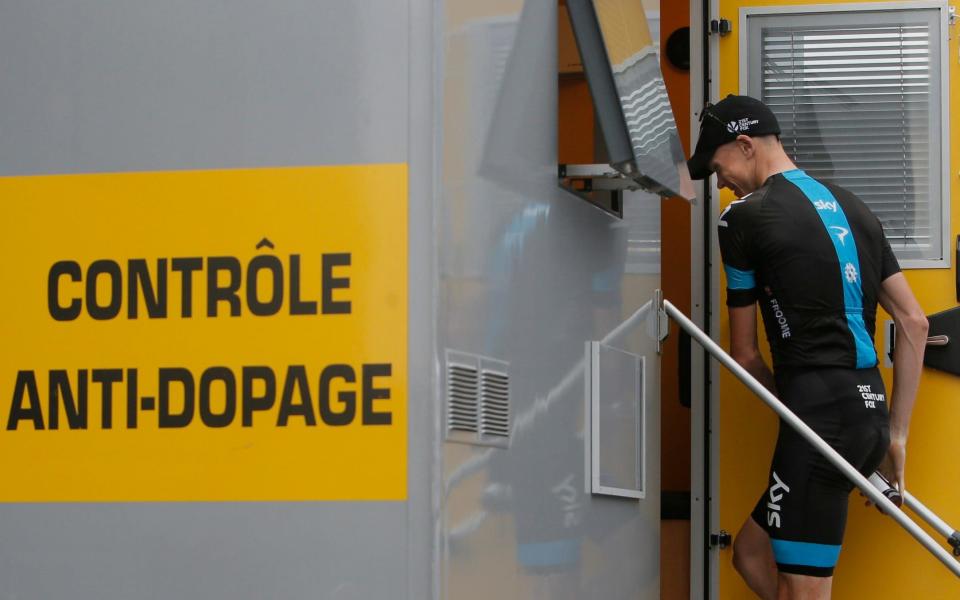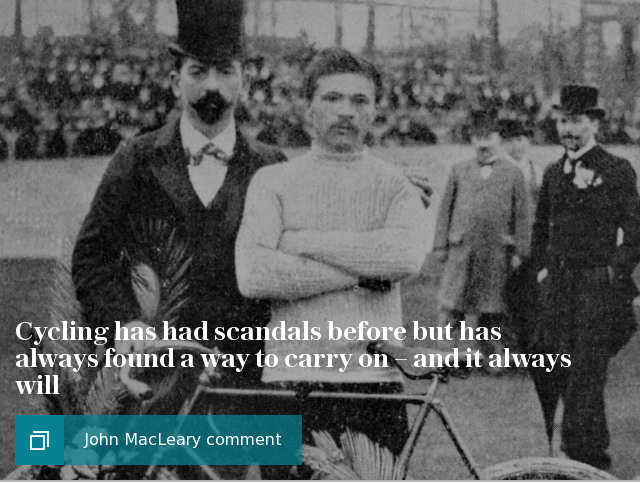Former UCI president Pat McQuaid believes it 'will be hard' for Chris Froome to prove his innocence

On a day when Pat McQuaid, the former president of cycling's ruling body, predicted it would be "very hard” for Chris Froome to avoid a ban for his adverse salbutamol test, speculation turned to how the Team Sky rider might try to do just that.
Reports in Italy suggested that Froome – who has engaged Mike Morgan, the London-based lawyer who successfully represented Lizzie Armitstead in her successful case against UK Anti-Doping ahead of last year's Rio Olympics – would try to prove that even "four puffs" of his Ventolin inhaler in close proximity would be enough to reach salbutamol concentrations in urine “triple those that Froome produced” in his test on Sept 7.
Froome was found to have roughly twice the allowed concentration of 1,000ng/ml in his test following stage 18 of the Vuelta a Espana, which he went on to win.
According to La Corriere della Sera, Froome will hope to demonstrate in a pharmacokinetic test [PK test] that he can achieve similar test results when inhaling only the allowed dosage of 1,600 micrograms over 24 hours, and no more than 800 micrograms every 12 hours.
The report added that if he was unsuccessful, Froome’s lawyers would argue “that Lausanne is not a Cantabrian climb and that riding on the rollers is not like in the mountains, dehydrated after three weeks of La Vuelta”.
McQuaid, meanwhile, told the BBC that Froome’s test result was "a huge shock... troubling and worrying", that it would be "very hard to avoid a ban" and said it was difficult to see how Team Sky could come out of this latest controversy with “any credibility at all".

The Irishman, who led cycling’s governing body between 2005 and 2013, said: "We're now three months down the road, and they haven't found a solution or a resolution to it yet.
“[Sky] have had a very difficult 15 months when they set out to be the team that is the clean team, that was going to bring back the credibility of cycling and they certainly have gone in the opposite direction this year.
"It's going to be very difficult to see how they can come out of this with any credibility at all to be honest with you. It begs a lot of questions."
McQuaid, who lost a bitter presidential election contest to Brian Cookson, concluded by questioning why his successor had come out recently and said that Sky should have its reputation “reinstated” when he “absolutely” would have known about Froome’s test result.

Cookson was UCI president at the time of Froome's adverse analytical finding [AAF] on Sept 7 before being replaced as president himself two weeks later.
"If a result comes through from the laboratory that a big, big rider has provided an adverse analytical sample then the president is involved, so he would have been aware," McQuaid said. "How Brian, knowing all of those facts, could turn around and say, 'you need to hand their credibility back to Team Sky', I just don't understand it, it's beyond me."
When asked by BBC Sport if he was made aware of Froome's adverse test while he was UCI president, Cookson denied he had any "role or influence" in the case.

 Yahoo Sport
Yahoo Sport 





































